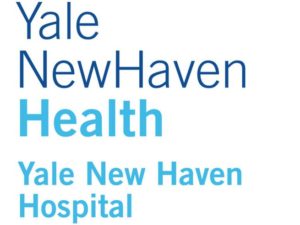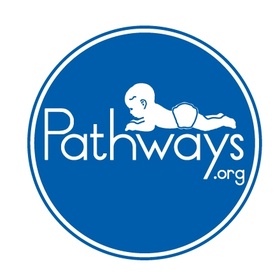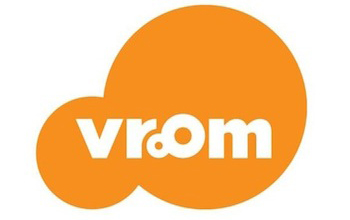Here are some books, TED Talks, and online resources that we believe will provide you invaluable tools and perspectives on your parenting journey.
- Videos from our faculty
Learn from BABL lab director, Dr. Helena Rutherford, about the neuroscience of maternal instincts
Listen to director of the Yale Child Study Center, Dr. Linda Mayes, sharing her thoughts on why helping children flourish matters
Watch this video from Turk-Browne Lab director, Dr. Nick Turk-Browne on cognitive neuroscience and infant imaging
Check out these talks from LLAMB lab directors, Dr. David Lewkovicz and Dr. Richard Aslin, on how babies acquire knowledge and language development in infancy
- TED Talks about parenting and child development
What we learn before we're born: Annie Murphy
Believe it or not, your baby was learning from you before he or she was even born! In this TED Talk, Annie Murphy talks about research that shows how much babies learn in the womb, ranging from the sounds of our native language to favorite foods.
What every new parent should know: Diana Eidelman
In this TEDx Talk, Diana Eidelman draws from her experience as a mother and family counselor to offer insight into the challenges of modern parenting. She provides insight into both child and parenting psychology and encourages us to focus on what is most important between parent and child in the first few years of life.
What do babies think: Alison Gopnik
Alison Gopnik is a psychologist renowned for her research on how babies gather intelligence and make decisions. What is your baby really doing when he or she plays? What is your baby really thinking at any given moment?
The surprisingly logical mind of babies: Laura Schulz
Your baby might be learning much more and at a much faster rate than you think! Laura Schulz uses research in cognitive science to argue that the minds of babies are surprisingly logical.
How to raise successful kids -- without over-parenting: Julie Lythcott-Haims
Julie Lythcott-Haims argues in this TED Talk that loading our kids with high expectations and micromanaging their lives at every turn might not actually be helping them. Instead, the key lies in providing our children with unconditional love.
Why talking to little kids matters: Anne Fernald
Anne Fernald is the director of the Language Learning Lab in the Stanford University Department of Psychology. In this TedTalk, she discusses how important speaking to your child, and early language exposure, is to your child's development.
- Books about parenting and child development

Meaningful Differences in the Everyday Experience of Young American Children Betty Hart & Todd Risley
This book is the story of the landmark psychological research on the "word gap" between children from low-income households and their more economically advantaged peers, with great implications for both society and you as a caregiver.

Becoming Brilliant: What Science Tells Us About Raising Successful Children Roberta Michinick Golinkoff & Kathy Hirsh-Pasek
Through a science-based framework, this book explores the question that all of us have wondered as parents: what can we do to raise successful and brilliant children, to become effective communicators, critical thinkers, and creative innovators?

The Philosophical Baby Alison Gopnik
In this book, Alison Gopnik describes a revolution in our scientific understanding of babies and how babies are able to learn from, perceive, and interact with the world.

Play = Learning: How Play Motivates and Enhances Children's Cognitive and Social-Emotional Growth Dorothy Singer, Roberta Michinick Golinkoff, & Kathy Hirsh-Pasek
How long do you let your child play every day? In this book, leading experts on child development and learning make an argument for the lasting benefits of play on a child's growth, from physical activity to the development of socioemotional skills.

Far From The Tree Andrew Solomon
This is an inspirational, compassionate, and reflective collection of true stories about families who learned how to deal with their exceptional children, ranging from deafness to prodigy, all the while profoundly discovering what it means to be a parent.

The Scientist in the Crib: Minds, Brains, and How Children Learn Alison Gopnik, Andrew Meltzoff, & Patricia Kuhl
Your baby is a natural scientist! This book uses cognitive science to explore how children are constantly learning, both from you and from their world.

Proust and the Squid Maryanne Wolf
This book integrates psychology with cognitive neuroscience, history, and linguistics to make the argument that "human beings were never born to read", with implications for how we can better understand the developing brain in children.

Einstein Never Used Flashcards: How Our Children Really Learn -- and Why They Need to Play More and Memorize Less Roberta Michinick Golinkoff, Kathy Hirsh-Pasek & Diane Eyer
We live in a society that increasingly pushes our children to learn faster and excel academically. The authors of this book are child psychologists who make the argument that play is not only okay, but actually better for your child's growth and development!

Baby Signs: How to Talk with Your Baby Before Your Baby Can Talk Linda Acredolo, Susan Goodwyn, & Doug Abrams
Your baby is communicating with you long before your baby has uttered his or her first word, and in this book you will learn about the importance of using non-verbal gestures and signs to improve your bond and strengthen your communication with your child.

Diversity in Early Care and Education: Honoring Differences Janet Gonzalez-Mena
Today's children are growing up in a world with increasing diversity in ethnicity, culture, gender, family composition, ability, and more. This book is an exploration of family cultures, and what impllications this cultural diversity has for our roles as caregiver and educator.
- Children's books
Reading aloud to your baby is an wonderful shared activity and bonding experience. You might wonder at times how much your baby really understands when you read to them. Before we start listing our recommendations, consider viewing this TED Talk on how much of a linguistic genius your baby really is, and how enriching it can be to expose your child to as much language as possible.
0-3 Years Old
At this age, your baby can't read by him- or herself just yet! But believe it or not, reading to your newborn is still a must. Your baby is learning at a explosively fast rate from the words that they hear around them, and the text they see on a page. Babies at this age will likely be most entertained by books that are highly interactive and textured (e.g. pop-ups, shiny covers, fabric pockets, etc.). Your child will also enjoy books with colorful pictures and big words!
Classics




Emphasizing diversity and inclusivity




3-5 Years Old
Recommended children's books for older age groups are currently in progress!
- Other resources and online tools

Childbirth and Parenting Courses at the Yale New Haven Hospital
Did you know that the Yale New Haven Hospital also offers focused, in-person courses on childbirth and parenting? These range from birth partner massage courses to infant and child CPR. See the link for more information on courses available and how you can register.

Pathways.org is a website with a wealth of material on parenting and baby development. The link above is an online tool where all you have to do is enter your baby's birth date. The tool will then calculate your baby's age and then generate developmental milestone information and a list of games that you can play with your baby, tailored to his or her developmental stage!

Vroom is a mobile application that will send you a tip every day on how you can help build your child's brain based on your child's age, grounded in developmental science. For example, "When you're out and about, point out things that you and your child have read about in books or seen in your child's favorite show." Their philosophy: every day is an opportunity to actively help your child learn!